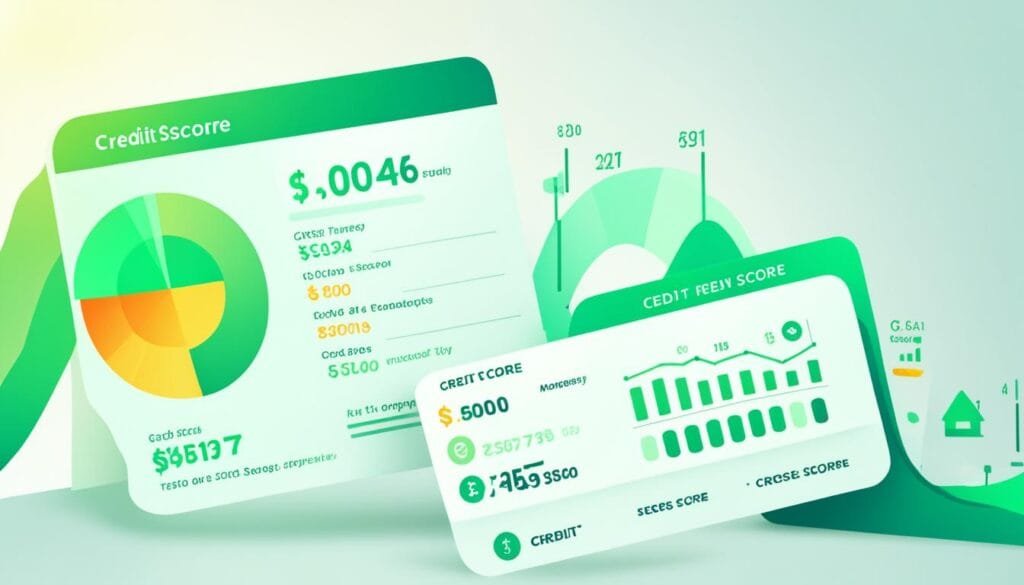When you’re in the market for a new or used car and need financing, your credit score can significantly impact your options. Lenders look at your credit score to assess your creditworthiness and determine the interest rate you’ll be offered. Higher credit scores usually result in lower interest rates, while lower scores could mean higher rates. Understanding how your credit score affects car financing can help you make informed decisions and potentially save money in the long run.
Improving your credit score before applying for a car loan can be beneficial. By paying bills on time, reducing debt, and monitoring your credit report for errors, you can gradually increase your credit score over time. This can help you secure better loan terms and potentially lower interest rates, allowing you to save money throughout the life of your car loan.
For individuals with bad credit, there are still options available. Some lenders specialize in bad credit car loans, which are designed to help individuals with low credit scores secure financing. While these loans may come with higher interest rates, they can still provide an opportunity to purchase a car and work towards improving your credit score in the future.
Key Takeaways:
- Your credit score has a significant impact on the interest rate you’re offered for car financing.
- Improving your credit score can help you secure better loan terms and potentially lower interest rates.
- Even with bad credit, you may still be able to qualify for car financing through specialized lenders.
- Monitoring your credit report for errors and paying bills on time can contribute to improving your credit score over time.
- Consider your credit score when exploring car financing options to ensure you make the best decision for your financial situation.
Factors Affecting Auto Loan Interest Rates
The interest rate you receive on your auto loan is determined by several key factors, including your credit score, income, and credit history. Lenders carefully evaluate these factors to assess your creditworthiness and determine the level of risk involved in granting you a loan.
Credit Score: Your credit score is a numerical representation of your creditworthiness. It reflects your ability to manage credit responsibly and repay debts on time. Lenders rely heavily on credit scores when assessing loan applications. A higher credit score indicates a lower risk for lenders, resulting in more favorable interest rates.
Income: Your income level is also taken into consideration when determining auto loan interest rates. A higher income may indicate a greater ability to meet loan obligations and may result in more favorable rates. Conversely, a lower income may lead to higher interest rates or even loan denial.
Credit History: Your credit history provides a record of your past credit behavior, including your payment history, amount of debt owed, and length of credit history. A positive credit history with timely payments and responsible credit management can contribute to lower interest rates, while a history of late payments or defaults may result in higher rates.
It’s important to note that auto loan interest rates can vary depending on individual circumstances and lender policies. While credit score, income, and credit history are significant factors, lenders may also consider other aspects such as the loan amount, loan term, and the type of vehicle being financed. It’s essential to shop around and compare loan offers from different lenders to secure the most favorable terms for your specific situation.
To illustrate the impact of these factors, here’s an example table showcasing how different credit scores can affect auto loan interest rates:
| Credit Score Range | Average Auto Loan Interest Rate |
|---|---|
| Excellent (781-850) | 3.49% |
| Good (661-780) | 5.19% |
| Fair (601-660) | 9.99% |
| Poor (501-600) | 14.99% |
| Very Poor (300-500) | 19.99% |
Loan Offers
When applying for an auto loan, lenders will provide you with offers based on their assessment of your creditworthiness. These offers will include details such as the loan amount, interest rate, loan term, and any other relevant terms and conditions. It’s crucial to carefully review and compare these offers to ensure you choose the best option that aligns with your financial goals and capabilities.
By understanding the factors affecting auto loan interest rates and carefully considering your financial situation, you can make informed decisions and secure the most favorable loan offers.
Average Car Loan Interest Rates by Credit Score
When it comes to financing a new or used car, understanding the average APR based on your credit score range is crucial. Experian provides valuable insights into the average car loan interest rates for both new and used cars.
For consumers with credit scores of 781-850, the average APR for new cars is 5.61%. On the other hand, individuals with credit scores of 300-500 can expect an average APR of 14.17% for new cars. This wide range reflects the impact of credit scores on interest rates. For used cars, the average APR ranges from 7.43% to 21.18% for the same credit score ranges.
Average Car Loan Interest Rates by Credit Score
| Credit Score Range | New Car APR | Used Car APR |
|---|---|---|
| 781-850 | 5.61% | 7.43% |
| 661-780 | 7.26% | 9.88% |
| 601-660 | 10.1% | 16.1% |
| 501-600 | 16.56% | 19.03% |
| 300-500 | 14.17% | 21.18% |
This table provides a comprehensive overview of average APRs for different credit score ranges, helping you determine what interest rates to expect when securing a car loan. Keep in mind that these rates serve as a benchmark and can vary depending on individual circumstances and lender policies.
Building and maintaining a good credit score can significantly impact the interest rate you’re offered when financing a car. It’s important to regularly check your credit score and take steps to improve it if needed. By doing so, you can secure better terms and rates, ultimately making your car financing experience more affordable.
Impact of Federal Reserve Rate Hikes on Auto Loan Interest Rates
When the Federal Reserve increases the federal funds rate, it can lead to higher auto loan interest rates. The Federal Reserve, often referred to as the Fed, is the central bank of the United States. It plays a critical role in regulating the country’s financial system and influences interest rates through its monetary policy decisions.
Since 2022, the Federal Reserve has implemented a series of rate hikes, resulting in significant changes to auto loan interest rates. As the federal funds rate increases, banks and lenders may raise their interest rates to compensate for the higher cost of borrowing money from the Federal Reserve.
This upward trend in auto loan interest rates has been observed in recent years, reaching some of the highest levels seen in a long time. Borrowers looking to finance a new or used car may face increased interest rates due to these Federal Reserve rate hikes.
However, it’s essential to recognize that auto loan interest rates are influenced by multiple factors, not solely the Federal Reserve’s actions. Market conditions, lender policies, and individual creditworthiness also play significant roles in determining the interest rates offered on auto loans.
While some sources provide monthly updated rates, they are not always broken down by credit score. It’s important for borrowers to be aware that interest rates can vary based on their credit history and scores. That’s why it’s crucial to shop around and compare loan offers from multiple lenders to find the best rate for your specific credit profile.
Understanding the impact of fluctuations in the Federal Reserve’s rate on auto loan interest rates is vital for borrowers who are looking to finance a vehicle. By staying informed and considering various factors, such as credit score, current interest rates, and lender policies, borrowers can make confident decisions when securing an auto loan.

In summary, the Federal Reserve’s rate hikes have a direct impact on auto loan interest rates. However, it’s important to consider other factors such as market conditions and individual creditworthiness. By understanding these influences, borrowers can make informed decisions when seeking car financing.
Importance of Down Payment in Car Financing
Making a down payment on a car can have multiple benefits in car financing. A higher down payment can lead to lower monthly payments and potentially reduce the overall interest paid on the loan.
According to Edmunds, the average down payment for used cars is approximately 10.9%. Using the amount received from a trade-in can also be used as a down payment, further reducing the amount financed.
By making a significant down payment, car buyers can take advantage of lower monthly payments and potentially save money on interest expenses over the life of the loan.
| Down Payment Amount | Monthly Payments | Total Interest Paid |
|---|---|---|
| $0 | $450 | $10,000 |
| $5,000 | $400 | $8,000 |
| $10,000 | $350 | $6,000 |
The table above illustrates the impact of different down payment amounts on monthly payments and total interest paid. As the down payment increases, the monthly payments decrease, resulting in significant savings over time.
It’s important for car buyers to assess their financial situation and determine the appropriate down payment amount that aligns with their budget and allows them to achieve their desired monthly payments and interest savings.
Understanding Credit Scores and Car Financing Options
Your credit score plays a significant role in determining your car financing options. Buyers with good credit scores of 661 or higher typically qualify for the lowest rates and best terms. However, even if you have bad credit or no credit, it’s still possible to secure car financing.
When it comes to car financing, different lenders offer different rates. This is why it’s important to shop around and compare offers from various lenders. By doing so, you can ensure that you’re getting the best deal possible and find a financing option that suits your needs and budget.
Different Car Financing Options
Here are some car financing options you can consider:
- Traditional Auto Loans: These loans are offered by banks, credit unions, and online lenders. They typically require a down payment and have fixed monthly payments over a set loan term.
- Dealership Financing: Many car dealerships offer their own financing options. These options may be convenient, but they often come with higher interest rates compared to other lenders.
- Credit Card Financing: Some credit card companies offer special financing options for car purchases. These options may have promotional interest rates or rewards programs that can be beneficial.
It’s important to keep in mind that each financing option comes with its own terms and conditions. Before committing to any loan or financing agreement, make sure to thoroughly review the terms, interest rates, and repayment schedules.
If you have bad credit, there are lenders who specialize in providing car loans to individuals with less-than-perfect credit. While these loans may come with higher interest rates, they can help you get the car you need and potentially improve your credit score over time.
“Having bad credit doesn’t mean you’re out of options. With the right lender and terms, you can still finance a car and work towards building a better credit score.”
To ensure you’re making an informed decision, always read the fine print and understand the terms and conditions of any car financing option you’re considering.

Factors to Consider When Choosing Car Financing Terms
When financing a car, it’s essential to carefully consider various factors that can impact your overall loan experience. Factors such as the loan term, monthly payments, and interest rates should all be taken into account to ensure you make an informed decision.
Loan Term
The loan term refers to the length of time you’ll have to repay the car loan. Loan terms typically range from 36 to 72 months, but can vary depending on the lender. Shorter loan terms generally offer better interest rates, as they minimize the risk for the lender. However, opting for a shorter loan term also means higher monthly payments. On the other hand, longer loan terms may result in lower monthly payments but can potentially lead to higher overall costs due to accumulating interest over a longer period. It’s important to find a loan term that strikes the right balance between manageable monthly payments and minimizing the total loan cost.
Monthly Payments
Monthly payments play a crucial role in your car financing journey, as they determine how much you’ll need to set aside each month to repay the loan. When choosing car financing terms, carefully consider whether the monthly payments fit comfortably within your budget. While shorter loan terms come with higher monthly payments, longer loan terms typically offer lower monthly payments. Assess your financial situation and determine the maximum monthly payment you can comfortably afford without straining your finances.
Interest Rates
Interest rates are another vital factor to consider when choosing car financing terms. Your interest rate directly impacts the cost of borrowing and can significantly affect the total amount you’ll pay over the life of the loan. Factors such as your credit score, income, and credit history can influence the interest rate you’re offered. It’s important to shop around and compare offers from different lenders to secure the best interest rate possible. Even a slight difference in interest rates can have a substantial impact on the overall affordability of your loan.
Using a car payment calculator can be a helpful tool in estimating monthly payments and understanding how different loan terms and interest rates can affect your financing. It allows you to input the loan amount, term, and interest rate to calculate a realistic monthly payment and set a budget that aligns with your financial goals.
By carefully considering factors such as the loan term, monthly payments, and interest rates before choosing car financing terms, you can make a well-informed decision that aligns with your financial situation and goals.
How Does Understanding Credit Score Myths Impact Car Financing?
When it comes to car financing, understanding credit score myths debunked can make a significant impact. Many people mistakenly believe that checking their credit score will lower it, but in reality, it won’t affect the score. Knowing the truth can help individuals make informed decisions when applying for car loans.
Conclusion
Your credit score is a crucial factor in car financing, determining the interest rates you’ll be offered and influencing your chances of loan approval. To optimize your car financing experience, it’s essential to understand the average car loan interest rates based on credit score ranges. Higher credit scores generally result in lower interest rates, while lower scores may lead to higher rates.
Improving your credit score can help you secure better terms and rates when financing a car. By making regular payments, reducing debt, and avoiding late payments or defaults, you can gradually improve your creditworthiness. It’s also important to consider other factors such as the down payment, financing options, and loan terms when making informed decisions about car financing.
Remember that a higher down payment can lead to lower monthly payments and potentially reduce the overall interest paid on the loan. It’s also crucial to explore different financing options and compare offers from various lenders to ensure you’re getting the best deal. Additionally, understanding the impact of loan terms on monthly payments and overall costs can help you set a realistic budget and choose the most suitable financing option for your financial situation.
FAQ
How does my credit score affect my car financing?
Your credit score plays a crucial role in determining the interest rate you’ll receive for car financing. Higher credit scores generally result in lower interest rates, while lower scores may lead to higher rates.
What factors determine the auto loan interest rate I receive?
Several factors influence the auto loan interest rate you receive, including your credit score, income, and credit history. Lenders use these factors to determine your likelihood of repaying the loan.
What are the average car loan interest rates based on credit score ranges?
According to Experian, the average APR for new cars ranged from 5.61% to 14.17% for credit score ranges of 781-850 and 300-500, respectively. For used cars, the average APR ranged from 7.43% to 21.18% for the same credit score ranges.
How do Federal Reserve rate hikes impact auto loan interest rates?
When the Federal Reserve increases the federal funds rate, it can lead to higher auto loan interest rates. Rate hikes that began in 2022 have resulted in car loan interest rates reaching their highest levels in years.
What is the importance of a down payment in car financing?
Making a down payment on a car can lead to lower monthly payments and potentially reduce the overall interest paid on the loan. The average down payment for used cars is approximately 10.9%.
What car financing options are available for different credit scores?
Buyers with credit scores of 661 or higher typically qualify for the lowest rates and best terms. However, even with bad or no credit, it’s still possible to secure car financing. It’s essential to shop around and consider different lenders and their specific policies and terms.
What factors should I consider when choosing car financing terms?
When choosing car financing terms, it’s important to consider factors such as the loan term, monthly payments, and interest rates. Loan terms typically range from 36 to 72 months, with shorter terms offering better rates but higher monthly payments.

